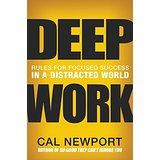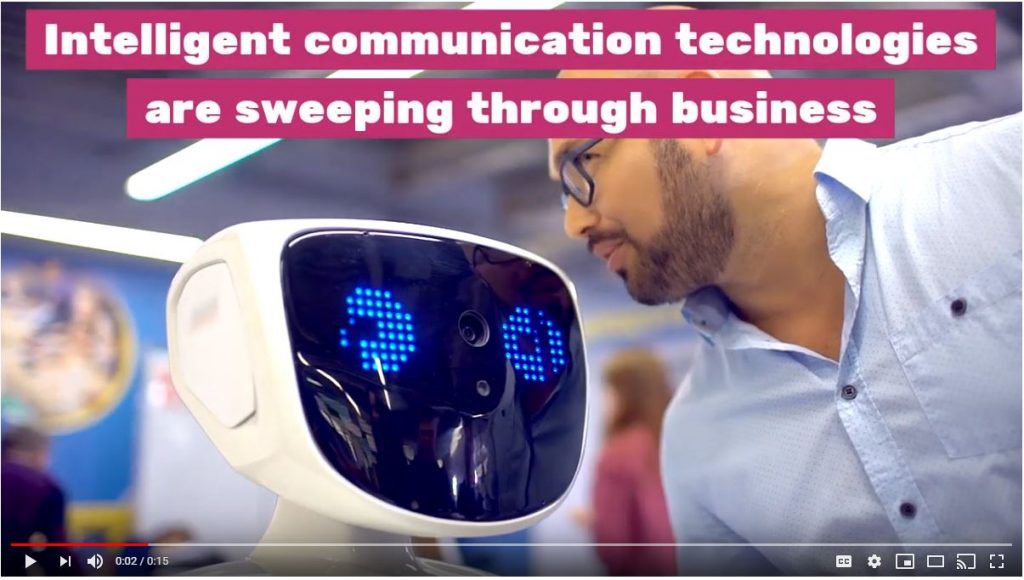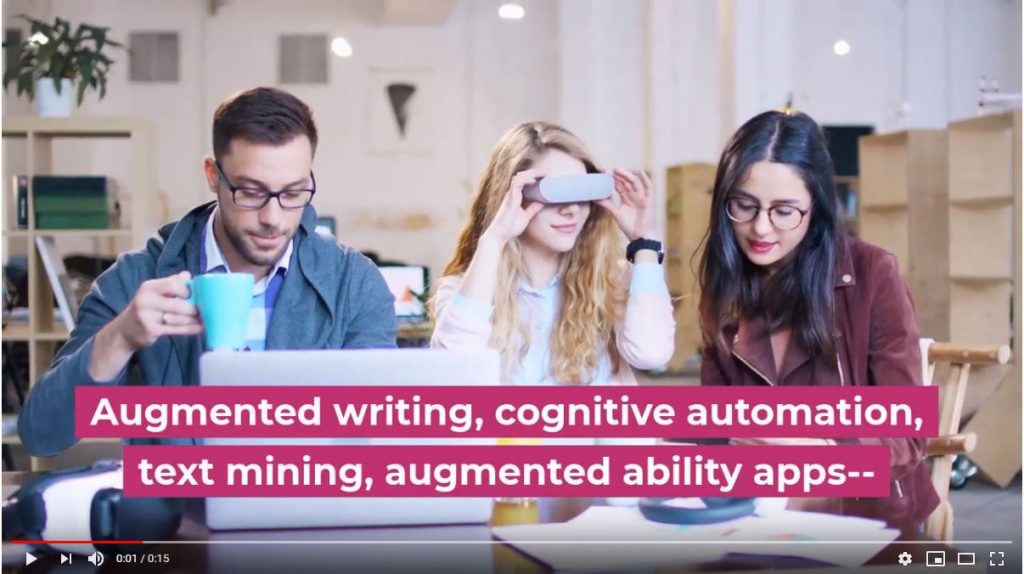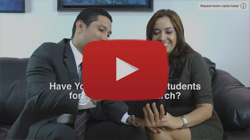Are your students prepared to encounter artificial intelligence in the job search process? A growing number of companies now use AI (artificial intelligence) for recruiting and interviewing. more in Excellence in Business Communication, 13th Edition.
Watch the short video . . .Business Communication Teaching Resources
Take advantage of these complimentary resources you can use
in keeping your class relevant and up to date. Read More
Teach Your Business Communication Students about Intelligent Communication Technologies
Intelligent communication technologies are sweeping through business, but only one text explains how artificial intelligence is revolutionizing business communication. Get ready for the future with Excellence in Business Communication, 13th Edition.
Watch the short video . . .Business Communication Textbooks: Finding the Right Fit for Your Course
As the only business communication series with three distinct textbooks, the Bovée-Thill series offers you more choices for a better fit with your unique needs—whether you focus on writing fundamentals, interpersonal communication, or contemporary media skills.
Read moreAugmented Writing, Cognitive Automation, Text Mining, and Augmented Ability Apps
Augmented writing, cognitive automation, text mining, and augmented ability apps are capabilities that were once the stuff of science fiction but are becoming everyday business tools. Get your students ready with Excellence in Business Communication, 13th edition.
Watch the short video . . .Tips and Tricks to Improve Your English
 “5 tips to help you boost your English and pronunciation and gain great results in a short period of time.”
“5 tips to help you boost your English and pronunciation and gain great results in a short period of time.”
Improve Your Students’ Knowledge of Interpersonal Communication
 "Conversational skills, active listening, negotiation, conflict resolution, nonverbal communication, collaboration, and productive meetings—prepare students for the demands of workplace communication with Excellence in Business Communication's expanded coverage of interpersonal communication."
"Conversational skills, active listening, negotiation, conflict resolution, nonverbal communication, collaboration, and productive meetings—prepare students for the demands of workplace communication with Excellence in Business Communication's expanded coverage of interpersonal communication."
8 Times Candidates Didn’t Get Hired Because of Something They Put on Social Media
 “We’ve collected real stories about candidates who were well on their way to snagging a new role, but didn’t, all or at least in part because of a social media post (or posts) someone on the hiring side found during the vetting process. That’s right, something they did on social media got them dropped like hot potatoes.”
“We’ve collected real stories about candidates who were well on their way to snagging a new role, but didn’t, all or at least in part because of a social media post (or posts) someone on the hiring side found during the vetting process. That’s right, something they did on social media got them dropped like hot potatoes.”
How to Actually, Truly Focus on What You’re Doing
 "Here’s what my browser generally looks like: work email in the left-most tab, always open. TweetDeck in the next one, always open. A few Google Docs tabs with projects I’m working on, followed by my calendar, Facebook, YouTube, this publication’s website and about 10 stories I want to read — along with whatever random shiny thing comes across my desktop. (Not to mention my iPhone constantly nagging me, though I’ve mostly fixed that problem.)"
"Here’s what my browser generally looks like: work email in the left-most tab, always open. TweetDeck in the next one, always open. A few Google Docs tabs with projects I’m working on, followed by my calendar, Facebook, YouTube, this publication’s website and about 10 stories I want to read — along with whatever random shiny thing comes across my desktop. (Not to mention my iPhone constantly nagging me, though I’ve mostly fixed that problem.)"
"This is no way to work! It’s awful, and my attention is divided across a dozen different things. My situation is far from unique, and most people who do most of their work on a computer know it all too well.
"Enter “deep work,” a concept coined by one of my favorite thinkers in this space, Cal Newport. He published a book in 2016 by that name, and in it he details his philosophy and strategy for actually focusing on the things we can do and accomplish."
Read the full article by Tim Herrera . . .How to Understand Native Speakers Better (and Join the Fluency Challenge)
 "In this video, we will discuss how to understand native speakers better (learn about intonation, reductions, dialects and how to practice and improve your listening skills). We'll also talk about how to pronounce words like: clearly, cappuccino, wonder vs. wander, how to say boss vs. buss, or words like: error, mirror, and horror."
"In this video, we will discuss how to understand native speakers better (learn about intonation, reductions, dialects and how to practice and improve your listening skills). We'll also talk about how to pronounce words like: clearly, cappuccino, wonder vs. wander, how to say boss vs. buss, or words like: error, mirror, and horror."
6 Reasons Why One May Be a Bad Listener (and How to Change It)
 "It may seem counterintuitive, but the way to achieve success is to make the people around you successful, says Fred Halstead, author of Leadership Skills that Inspire Incredible Results. “It’s not particularly intuitive; in our society we believe in ‘me first,'” he says."
"It may seem counterintuitive, but the way to achieve success is to make the people around you successful, says Fred Halstead, author of Leadership Skills that Inspire Incredible Results. “It’s not particularly intuitive; in our society we believe in ‘me first,'” he says."
"To help others succeed you have to become good at listening. Listening is more than simply hearing what someone has to say. You also need to be thinking how you can help the other person achieve the best results by carefully considering their words and asking thoughtful questions, says Halstead [photo, left].
“'If you just hear the words without hearing what the person actually intends to say, you will miss the opportunity to gain the essential clarity and results you seek,' he says."
Read the full article . . .





